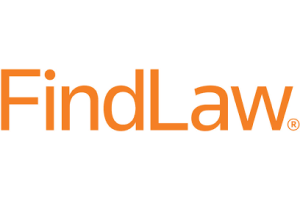as a Consumer
Navigating Virginia Repossession Laws: Your Comprehensive Guide

Repossession laws vary from state to state, and repossession laws in Virginia govern the repossession process there. In this detailed exploration, we will address key questions that Virginia citizens may have regarding their rights and the Virginia vehicle repossession procedure. Understanding these laws is crucial for individuals facing or having experienced vehicle repossession, and contacting a repo rights lawyer focused on repossession law is strongly recommended for comprehensive guidance.
1. What Causes a Vehicle Repossession in Virginia? Understanding Triggers Beyond Missed Car Payments
In Virginia, a repossession is not solely triggered by missed payments; various factors may lead to the initiation of the repossession process. It’s crucial for borrowers to be aware of security interest triggers outlined in their car loan agreements to anticipate potential repossession. Here are some key factors that can cause a repossession in Virginia:
Missed Payments:
The most common cause of Virginia vehicle repossession is defaulting on car loan payments. If a borrower fails to make payments according to the terms specified in the loan agreement, the lender may declare their security interest in default and initiate repossession.
Violation of Loan Terms:
Repossession may occur if a borrower violates any terms outlined in the loan agreement. This could include breaching specific clauses related to insurance coverage, maintaining the vehicle in good condition, or any other contractual obligations.
Failure to Maintain Insurance:
Many auto loan agreements in Virginia require borrowers to maintain a certain level of insurance coverage on the financed vehicle. If a borrower fails to secure or renew the required insurance, it may be considered a default, leading to repossession.
Unauthorized Modifications:
Making significant modifications to the vehicle without the lender’s consent may be grounds for repossession. Borrowers should be cautious about making alterations that could impact the vehicle’s value or insurability without informing the lender.
Fraudulent Activities:
Engaging in fraudulent activities related to the vehicle or the loan agreement can lead to repossession. This may include providing false information during the loan application process or attempting to conceal the vehicle’s whereabouts.
Failure to Respond to Notices:
Virginia law requires lenders to provide notices of default and an opportunity to cure before repossession. Ignoring or failing to respond to these notices may escalate the situation and result in the lender taking possession of the vehicle.
Exceeding Mileage Limits:
Some auto loan agreements may include mileage restrictions. If a borrower exceeds these limits without obtaining the lender’s approval, it could be considered a violation of the loan terms, potentially leading to repossession.

Understanding these triggers beyond missed payments is vital for borrowers in Virginia. It emphasizes the importance of reviewing loan agreements thoroughly and staying informed about all terms and conditions to avoid unintentional defaults and repossession. Seeking legal advice, especially from Thompson Consumer Law Group through free case reviews, can provide valuable insights for borrowers facing the complexities of repossession in Virginia.
2. How to Know When You Can Expect a Repossession
Understanding the indicators that may precede repossession is crucial for borrowers in Virginia. Several key signals may serve as warnings:
Written Notice of Default:
Lenders in Virginia are required to provide borrowers with a formal written notice of default when they are in violation of the loan agreement. This notice outlines the specific reasons for default, the amount due, and the actions required to cure the default. It serves as an early warning, signaling that car repossession may be imminent if the default is not addressed within the specified timeframe.
Opportunity to Cure:
The notice of default typically includes an opportunity for the borrower to cure the default and avoid repossession by making the necessary payments or rectifying the violation prior to private sale by the lender. Borrowers should carefully review this notice and take prompt action to address the issues raised to prevent repossession. Generally, Virginia law requires the sale of repossessed motor vehicles promptly to avoid extra depreciation.
Communication from the Lender:
Lenders may proactively communicate with borrowers regarding potential repossession. This communication could come in the form of letters, emails, or phone calls, emphasizing the importance of open lines of communication. Responding promptly and transparently to such communications can sometimes help negotiate alternatives to repossession.
Monitoring Payment History:
Regularly monitoring payment history and staying aware of missed or late payments is essential. If a borrower consistently falls behind on payments, it increases the likelihood of triggering repossession. Being proactive in addressing financial challenges or seeking assistance is key to preventing repossession.
3. What Are Repo Men Allowed to Do to Repossess a Car?
Repo men in Virginia are granted certain rights, but they must operate within legal boundaries during the repossession. Understanding what repo men are allowed to do can help borrowers protect their rights:
Public Space Repossession:
Repo men are generally allowed to repossess a vehicle from a public space, such as a street or parking lot, without breaching the peace. This could involve towing the repossessed car to a secure location for storage.
Private Property Considerations:
While repo men can seize a vehicle from a public space, entering private property without the owner’s permission is prohibited unless they have obtained a court order or the right of replevin. Trespassing during repossession may lead to legal consequences.
Avoiding Breach of Peace:
Repo men are strictly prohibited from breaching the peace during repossession. This includes using force, threats, intimidation, or engaging in confrontational behavior. Any actions that escalate into a breach of peace may be legally challenged by the borrower.
No Self-Help Repossession:
Virginia law prohibits self-help repossession, meaning repo men cannot use force or threats to repossess a vehicle. They must follow legal procedures and avoid actions that could be deemed aggressive or unlawful.

If you think your repo rights were violated contact Thompson Consumer Law Group for a free no obligation analysis of your situation.
4. What Constitutes a Violation of Repo Rights, Including Breach of Peace and Where the Lender Has No Right to Repossess
Understanding repo rights and potential violations is crucial for borrowers in Virginia. It goes beyond breach of peace and includes situations where repossession may be considered unlawful:
Breach of Peace:
Repo men breaching the peace during repossession is a serious violation. This includes any aggressive or confrontational behavior, such as using force, threats, or intimidation. Borrowers have the right to challenge a repossession that involves a breach of peace.
Lender’s Lack of Authorization:
If a lender initiates repossession without proper authorization, it constitutes a violation of repo rights. Borrowers should verify that the lender has followed the legal process, provided adequate notices, and has the right to repossess the vehicle.
Trespassing on Private Property:
Repo men entering private property without the owner’s permission may be in violation of repo rights. Unless they have obtained the necessary legal authorization, such as a court order or right of replevin, trespassing during repossession is unlawful.
Unlawful Self-Help Repossession:
Any repossession actions that involve self-help, such as using force or threats, are considered unlawful in Virginia. Repo men must adhere to legal procedures and avoid actions that could lead to confrontations or breaches of peace.
Understanding these nuances empowers borrowers to recognize potential violations of their repo rights, ensuring a more informed response if faced with repossession. Seeking legal advice from Thompson Consumer Law Group is highly recommended for comprehensive guidance tailored to the specific circumstances of each repossession case in Virginia.
5. What Can Be Done After the Repossession?
After repossession, Virginia law requires lenders to provide a written notice to the borrower detailing the disposition of the repossessed vehicle. This notice includes information about the sale of the vehicle and any deficiency balance owed by the borrower. Borrowers may have options to redeem the vehicle or dispute the deficiency balance.
Legal Advantages in Virginia:
Virginia’s repossession laws offer certain advantages compared to other states. The requirement for lenders to provide notices of default and an opportunity to cure provides borrowers with clearer insight and potential remedies before repossession. Additionally, the prohibition of breaching the peace during repossession helps protect borrowers from aggressive or unlawful tactics.
Seeking Legal Guidance:
While this guide provides an overview of Virginia’s repossession laws, consulting with a lawyer focused in repossession law is the safest option for a thorough understanding of all legal intricacies. A lawyer can provide tailored advice, assist in disputing improper repossessions, and ensure that borrowers’ rights are fully protected throughout the repossession process. Wrongful Repossession Attorneys at Thompson Consumer Law Group offers free case reviews to help Virginia citizens navigate their repossession concerns with confidence and clarity.







